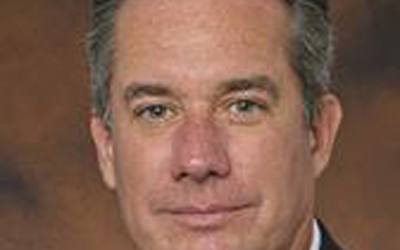Some much-deserved recognition for a longtime fed in the financial management arena
Recently, the Senior Executives Association announced the winners of its annual awards program. Among this year's winners was Avie Snow. Now retired, Snow spent...
Recently, the Senior Executives Association announced the winners of its annual awards program. Among this year’s winners was Avie Snow. Now retired, Snow spent several years as a financial manager for the Coast Guard, the Homeland Security Department, and ending at Veterans Affairs. Federal Drive with Tom Temin, Executive Producer Eric White got the chance to speak with Avie to learn more about her career path.
Interview Transcript:
Avie Snow I came to VA in 2014. I came there. I was hired to implement a new, integrated finance and acquisition system at the time, I don’t know if they knew or if we knew about adding assets to that, you know, integrated assets, finance, and acquisition. But, you know, essentially that’s why I was brought to the department. They had an antiquated and still do, 40 year old, over 40 years old financial system and they had never been integrated with the acquisition system. And so I came there to do that work, and that’s what I did.
Eric White Yeah. And you say antiquated. Obviously, that comes with a whole host of problems, you know, coming from places such as Homeland Security and the Coast Guard where, you know, maybe things are a little bit more updated. What were some of the challenges that came with having an antiquated acquisition system?
Avie Snow You know, interestingly, the biggest challenge of all was change management. It’s because when you have a system in place for that long and you have all the experts and you have all the people that know how to use it, they don’t want to change. And VA is a behemoth. It’s huge. It’s, you know, second only to DoD in size. And so, you know, I had done this work at Coast Guard. I had, you know, attempted to do the work at DHS. It was a very litigious environment. But we had implemented other systems, travel systems and whatnot, you know, with 23 components. And I can honestly say that I had never come across a culture like VA where it was just it is the culture that will stop it. I mean, the system works, but the real issue is that, you know, will the culture accept the change? And change management was one of the biggest difficulties, I would say. So, you know, so there’s that aspect of it. And then because it’s such a legacy environment, integrating with other legacy systems, I mean, VA has systems that are over 60 years old. You know, they were in months. You know, this is stuff that came out of M.I.T. in the seventies and early eighties. And so that, you know, the technical aspects to some of that are very, very difficult. So you have the technology issues. The other thing is, is that you actually have hospitals, you know, we can’t interrupt that supply chain. I mean, you literally, you know, we can’t impact patient care. We can’t impact veteran care. And so what happens is, is you’re literally working in an environment where the systems, no matter how antiquated they are, they’re necessary for that every day care and feeding of the veteran.
Eric White And obviously, supply chain issues were front and center during the past two or three years or so. You know, given all of the problems that came arose from the pandemic, it made things put strain, obviously on the medical system. What were your role, I guess, in managing just how, you know, where finances were coming from weren’t necessarily reliable?
Avie Snow Well, we were integrating with those systems, so we actually worked with those folks. Those systems were in place and operating and whatnot. But our goal was to integrate seamlessly with those systems and not impact patient care in any way or any, you know, supplies to, you know, hospitals or clinics or what have you. So, I mean, those you know, those apps operated as they as they do, it was our job to figure out how to integrate with those systems without it impacting it. You know, it’s just all the things that have to be taken into consideration as you move forward with an effort of this scale.
Eric White We’re speaking with Avie Snow. She is the retired associate deputy assistant secretary for Financial Management and Business Transformation, and also the recipient from the Senior Executives Association, Senior Executive Professional Lifetime Achievement Award. Let’s get into those words. Lifetime achievement, obviously, a long, long career. If you could just give us a few highlights and what are your what you feel are your biggest accomplishments and why do you deserve this award Avie?
Avie Snow Yeah, well, it’s humbling. I’ll tell you. You know, I started out you know, it’s funny, I started out as an ADP intern in the 80s, and I went to the Night Vision Lab and I worked on we were very much I mean, Night Vision was a soldier in the field, and I worked on all kinds of different programs there. I was there for Operation Desert Storm, the original issues with Bosnia, you know, So working on all those. Part of big teams really outfitting soldiers in the field to, you know, accomplish, you know, whatever the whatever the missions were. I also had the luck to be at night vision when everything started going to the web, you know, and so and it was a very innovative place to be. And it was it was research and development. And so I was really on that cutting edge of WWW you know, and it was interesting because the Army had actually had ARPANET long before there was, you know, the World Wide Web. And so I really learned a lot about technology there. And then I went to the Coast Guard and of course, very, very different mission than the Army. But I got into more of what I would call support systems. I actually worked on it’s funny, I worked on a, you know, the H.R. system at first whatever, but I met Ed Murray, who actually was my boss’s boss at the VA, and they were doing they were actually moving Coast Guard systems from, you know, at the time it wasn’t even really client server, but it was really they had just very localized systems and we were moving everything to the web. So that’s really where I got my experience with the financial system, simplified acquisition systems and integration, really doing a lot of cutting edge stuff, moving systems because the Coast Guard was actually divided into quadrants. We had land area and PAC area and you know, there was there was the North United States in the southern United States. And of course, Coast Guard, they had all the water, you know, think about all the water, the waterways, the lakes, the you know, so what we started doing is consolidating everything and bringing everything to the web. And that’s really where I got my start on, you know, on the financial and acquisition system side. And I have to tell you, you know, first of all, I loved working for the Coast Guard and I had some of my biggest successes and some of my biggest failures. And they say you learn from your failures and you really do. The first time we ever pulled together for we you know, we had this it was a simplified acquisition system and we had four disparate databases serving those four quadrants of the United States for the Coast Guard. And we tried to bring those all together and put them on the Web. And interestingly, the data that it was, it was a mess. And Admiral Allen, Thad Allen was actually the chief of staff of the Coast Guard at the time. And he said, Avie, you’re going to fix this. Right. And I go, “Yes, sir, I am.” You know, And so, you know, but we learned a lot. We learned so much about data. We learned what happens with configurations and why, you know, these things need to be vetted. And we learned about mock migrations of data and really, you know, how to how to get how to get something implemented correctly with, you know, data in place, the proper training, the proper testing. And that really was the foundation for everything that I did. But I but I have to say, I had great success at the Coast Guard and we were really ahead of our time. And I, I think what I didn’t realize was I had a lot of people paving the way for me. And it really wasn’t until I got to DHS where I realized that because there I was, I became like the front line. I became an SES. And what I didn’t know about, you know, the political world and OMB and how, you know, how politics played into this. I that’s where I really learned that all those folks at the Coast Guard were paving the way for me to be able to work and deliver. And like I said, we you know, we had incredible success. You know, 911 happened and we were able to bring on TSA and the air marshals and domestic nuclear detection and bring them all onto one system and then, you know, and then go from there. So at least they had finance and acquisition and simplified acquisition, you know, that purchasing power, you know, those kinds of things. And then, you know, they asked me to come to the department and do the same, you know, across of what was becoming the Department of Homeland Security. So I think my the real success and to make a very long, long answer just slightly longer was really that ability to work and deliver at the Coast Guard. It really provided the foundation for everything that was to come.
Copyright © 2024 Federal News Network. All rights reserved. This website is not intended for users located within the European Economic Area.
Eric White is news anchor and Federal Drive producer at Federal News Network.
Follow @FEDERALNEWSCAST






